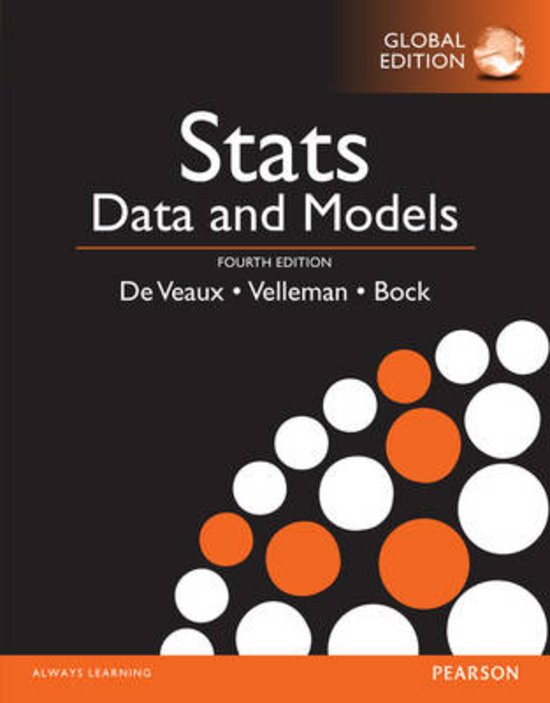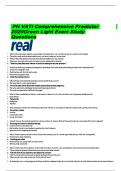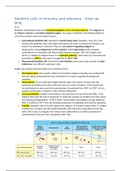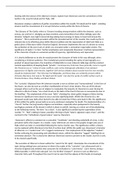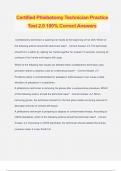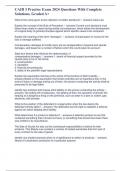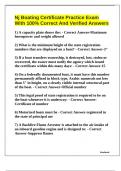Probability
Global Edition
4th edition
De Veaux, Velleman and Bock
,Index
- Chapter 5 (5.3 and 5.4)
- Chapter 13
- Chapter 14
- Chapter 15
- Chapter 16
- Chapter 17
, Chapter 5 (5.3 and 5.4)
Z-score = an indication of how unusual a value is, tells how far it is from the mean
Normal models = appropriate for distributions whose shapes are unimodal and roughly
symmetric N = (, )
Parameters = numbers that we choose to help specify the model, they are part of the model,
they don’t come from the data (always use Greek
Statistics = summaries of data (usually written with Latin letters)
¿¿
Z = y− ❑
Standard Normal model/standard Normal distribution = the normal model with mean 0 and
standard deviation 1
Normality assumption = the assumption that the distribution is normal
Nearly Normal condition = the shape of the data’s distribution is unimodal and symmetric
check by making a histogram
68-95-99.7 rule
- 68% of the values fall within 1 standard deviation of the mean
- 95% of the values fall within 2 standard deviations of the mean
- 99.7% (almost all) of the values fall within 3 standard deviations of the mean
Normal percentiles = shown in the Z-score table
Chapter 13
Random phenomenon = a situation in which we know what outcomes can possibly occur,
but we don’t know which particular outcome will happen
Trial = each occasion upon which we observe a random phenomenon
(Trial) outcome = the value of the random phenomenon
Event = combined outcomes
Sample space = the collection of all possible outcomes S
Law of Large Numbers (LLN) = as we repeat a random process over and over, the proportion
of times that an event occurs does settle down to one number = the probability of the event
Assumption on LLN
1. The random phenomenon must not change, the outcomes must be the same
2. The event must be independent
Independence = the outcome of one trial doesn’t affect the outcomes of the other

